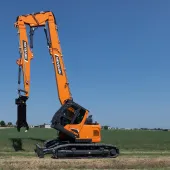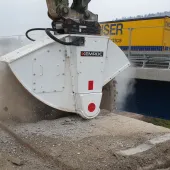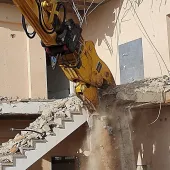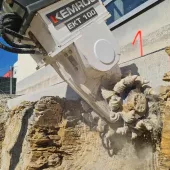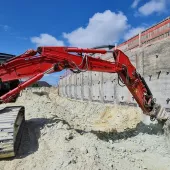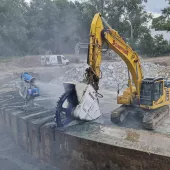Improving Reuse and Recycling Rates in Construction
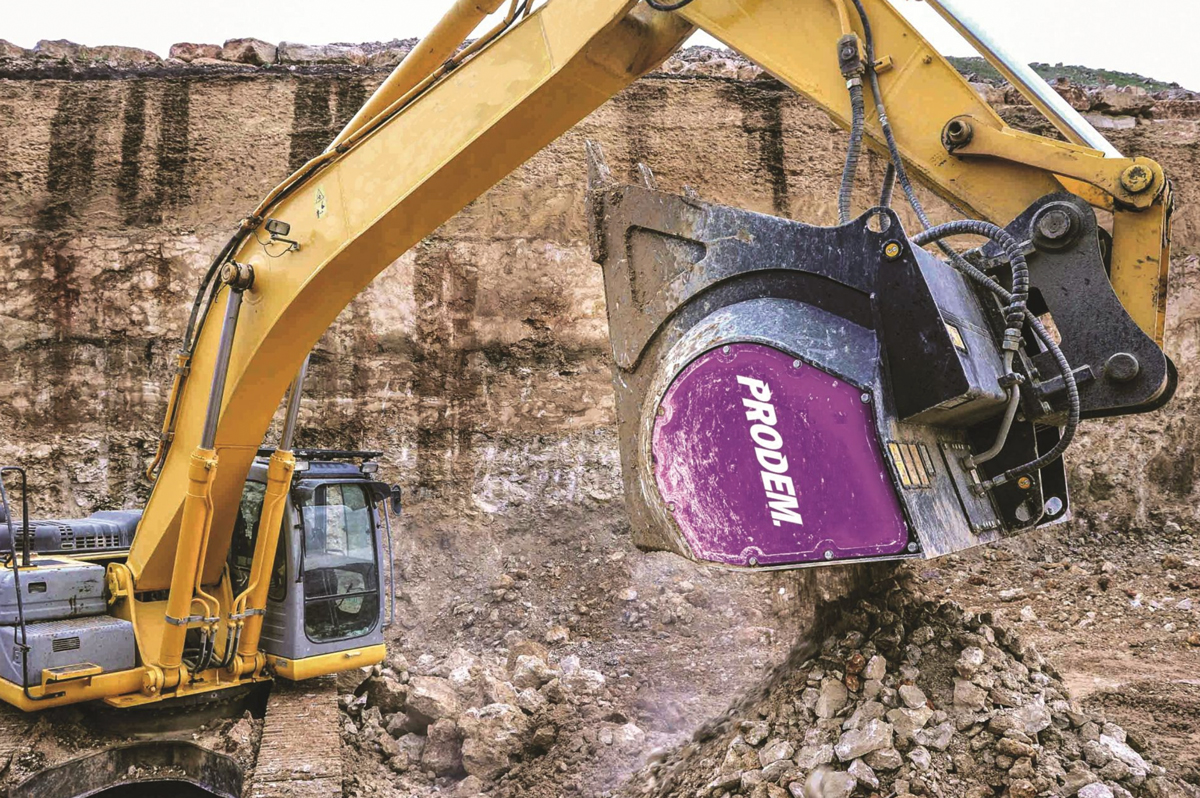
First published in the October 2020 issue of Quarry Management as Waste No More
As efforts to combat climate change intensify, an emphasis on tackling the impact of waste on our environment has become a crucial factor to solving the climate emergency. Matthew Bastable, sales director of BPH Attachments, discusses the importance of improving reuse and recycling rates in construction, and taking a pragmatic approach to choosing the right reprocessing equipment
The construction industry is the UK’s largest user of natural resources. According to a report by WRAP, the sector uses 400 million tonnes of material every year, resulting in 100 million tonnes of waste being produced. This accounts for over a third of the UK’s total yearly waste, with around 25 million tonnes of construction waste ending up in landfill.
Generating site waste is often unavoidable, but construction firms still have a legal obligation to ensure it is properly managed and that waste is reused or recycled wherever possible through Site Waste Management Plans (SWMPs).
Sending waste to landfill should only be a last resort. However, around 13% of products delivered to construction sites are sent directly to landfill without having been used. This not only has huge implications for the environment, but a large effect on a company’s bottom line.
By using materials in a better way, and reducing, reusing and sorting waste for recycling, many businesses in the construction supply chain could save thousands of pounds per project and greatly minimize the impact they have on the environment.
Managing waste on construction sites can be a complicated and time-consuming business. But, through careful planning, it is possible to eliminate waste and identify materials that can be reused and recycled. Having a clear understanding of the project and choosing materials wisely from the outset will help to encourage more effective waste disposal planning.
While understanding which materials can be successfully reused and recycled is pivotal to reducing and addressing waste issues, this also relies on the processes adopted to recover and prevent construction and demolition (C&D) waste from ending up in landfill unintentionally.
Materials should always be screened before being sent to landfill. Specialist equipment, such as the PRODEM rotary screening bucket, is specially designed to sort on-site waste materials quickly and easily for reuse. Distributed in the UK by BPH Attachments, the bucket attachment can be fitted on excavators and wheel loaders, and many waste-management firms are increasingly finding these tools and attachments are providing numerous benefits for their projects.
For example, bricks, blocks and concrete can be easily sorted, recycled and reused on key infrastructure projects, such as the creation of new roads and pathways. This saves money, improves overall environmental performance and ensures legal obligations are met.
In addition to the PRODEM PSB-R Series rotary screening bucket, earlier this year BPH expanded their PRODEM hydraulic attachments offering in the UK, with the launch of the PCB crusher bucket.
Designed to efficiently crush and reprocess waste material into reusable hardcore or infill, the bucket can help improve a project’s waste ratio and increase productivity on site (with a feed capacity of up to 350 tonnes/h) by maximizing utilization of compatible machinery.
Key features of the PCB crusher bucket attachment include: a patented auto-reverse crushing drum; intuitive jaw adjustment; high displacement radial piston hydraulic motors; wear-resistant teeth; and easy forward-facing/reverse-facing loading.
The Prodem PCB crusher bucket is suitable for use on excavators and backhoe loaders weighing 8–55 tonnes and allows the in-situ recycling of C&D waste.
The estimated cost of waste on a construction project is approximately 10 times that of a single skip hire. Additionally, landfill tax, disposal charges and the cost of materials are all set to substantially rise in the coming years. Waste will continue to be a problem for the construction industry so finding innovative methods for managing it successfully is not only essential for business efficiency, but also an ethical responsibility for future generations.
- Subscribe to Quarry Management, the monthly journal for the mineral products industry, to read articles before they appear on Agg-Net.com


